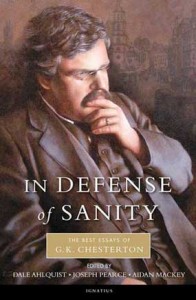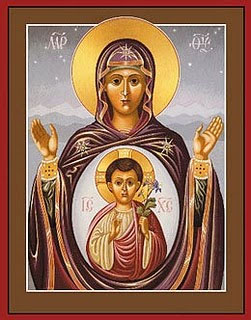Episode 13 – Seeking Truth with Sharon Doran, hosted by Bruce McGregor. Â Â John Chapter 20 “Doubting Thomas”
[powerpress]
Sharon Doran serves as the teaching director of “Seeking Truth.†An experienced Bible Study teacher, Sharon has a passion forscripture that will motivate and challenge you to immerse yourself in God’s Word and apply His message to your every day life.
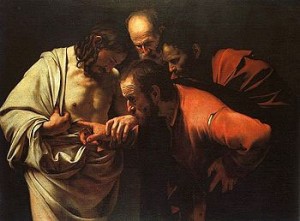 Episode 13 – Sharon and Bruce discuss “Doubting Thomas”.  John Chapter 20.  Why Thomas was allowed to touch Jesus and Mary Magdalene was not.  The significance of the actual wound in Jesus’ side and implications for the Church.  Why this interaction between Jesus and Thomas is more  important than what we think.  What is ahead for Thomas, but also what is ahead for the Body of Christ.
Episode 13 – Sharon and Bruce discuss “Doubting Thomas”.  John Chapter 20.  Why Thomas was allowed to touch Jesus and Mary Magdalene was not.  The significance of the actual wound in Jesus’ side and implications for the Church.  Why this interaction between Jesus and Thomas is more  important than what we think.  What is ahead for Thomas, but also what is ahead for the Body of Christ.
 “Seeking Truth†is an in depth Catholic Bible Study, commissioned by the Archdiocese of Omaha in response to John Paul II’s call to the New Evangelization as well as Pope Benedict XVI’s exhortation for all Catholics to study scripture. To learn more go to:www.seekingtruth.net
“Seeking Truth†is an in depth Catholic Bible Study, commissioned by the Archdiocese of Omaha in response to John Paul II’s call to the New Evangelization as well as Pope Benedict XVI’s exhortation for all Catholics to study scripture. To learn more go to:www.seekingtruth.net
Tags: catholic, catholic podcast, catholic prayer, cathollc spirituality, gospel of john, seeking truth
This entry was posted on Saturday, December 17th, 2011 at 9:55 am
You can follow any responses to this entry through the RSS 2.0 feed.
Episode 7 – Communion with Christ – Practical Prayer – 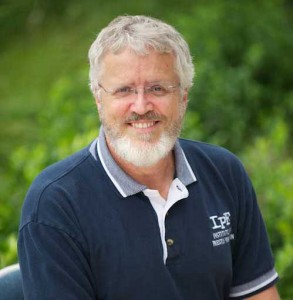 The will to pray.  To listen, to search, to see Him…to become prayer ourselves.  You know are progressing by the fruit of your life.  The parish as the “school of prayer”  The pastor as teacher of prayer, the spiritual father.  The disordered demands we may place on the priest.  What is the remedy?
The will to pray. Â To listen, to search, to see Him…to become prayer ourselves. Â You know are progressing by the fruit of your life. Â The parish as the “school of prayer” Â The pastor as teacher of prayer, the spiritual father. Â The disordered demands we may place on the priest. Â What is the remedy?
[powerpress]
Deacon James Keating, PhD, the director of Theological Formation for the Institute for Priestly Formation, located at Creighton University, in Omaha.
 From the Catechism of the Catholic Church paragraph 2650and 2651
From the Catechism of the Catholic Church paragraph 2650and 2651
2650 Prayer cannot be reduced to the spontaneous outpouring of interior impulse: in order to pray, one must have the will to pray. Nor is it enough to know what the Scriptures reveal about prayer: one must also learn how to pray. Through a living transmission (Sacred Tradition) within “the believing and praying Church,”1Â The Holy Spirit teaches the children of God how to pray.
2651 The tradition of Christian prayer is one of the ways in which the tradition of faith takes shape and grows, especially through the contemplation and study of believers who treasure in their hearts the events and words of the economy of salvation, and through their profound grasp of the spiritual realities they experience.2
For more information on the “Institute of Priestly Formation†and for other material available by Deacon Keating, just click here
Don’t forget to pickup a copy of “Communion with Christ†, it is one of the best audio sets on prayer…ever!
Check out Deacon Keating’s “Discerning Heart†page
Tags: catholic, catholic podcast, catholic prayer, cathollc spirituality, creighton university, Deacon Keating, institute for priestly formation, james keating, theological formation
This entry was posted on Saturday, December 17th, 2011 at 8:43 am
You can follow any responses to this entry through the RSS 2.0 feed.
How can you possibly pick the best of G. K. Chesterton’s essays?  Thank goodness for Dale Ahlquist, Joseph Pearce, 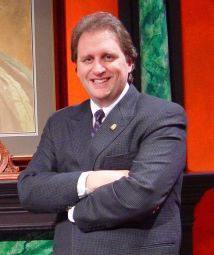 Aidan Mackey!  Leading authorities on all things G. K. they’ve done it for us…and what a feast!  From cheese to Jane Austen, barabarians to “what is right with the world”, G. K. covers it all.  And the beauty is that it is still as relevant today as it was in his day…that’s the mark of genius, or more accurately, authentic wisdom and grace.  Dale Ahlquist is  always a joy to talk with!  He is the “good son” of G. K.  Have fun with the listen and then read “In Defense of Sanity: The Best Essays of G.K. Chesterton”
Aidan Mackey!  Leading authorities on all things G. K. they’ve done it for us…and what a feast!  From cheese to Jane Austen, barabarians to “what is right with the world”, G. K. covers it all.  And the beauty is that it is still as relevant today as it was in his day…that’s the mark of genius, or more accurately, authentic wisdom and grace.  Dale Ahlquist is  always a joy to talk with!  He is the “good son” of G. K.  Have fun with the listen and then read “In Defense of Sanity: The Best Essays of G.K. Chesterton”
[powerpress]
You can find the book here
Tags: Aidan Mackey Leading, catholic, catholic podcast, catholic prayer, cathollc spirituality, chesterton, Dale Ahlquist, g. k. chesterton, igantius press, jane austen, joseph pearce
This entry was posted on Saturday, December 17th, 2011 at 8:27 am
You can follow any responses to this entry through the RSS 2.0 feed.
“He will save his people from their sins”
[powerpress]
an excerpt from today’s reflection by Don Schwager: 
Do you know who your ancestors were, where they came from, and what they passed on from their generation to the next? Genealogies are very important. They give us our roots and help us to understand our heritage. Matthew’s genealogy of Jesus traces his lineage from Abraham, the father of God’s chosen people, through the line of David, King of Israel. Jesus the Messiah is the direct descent of Abraham and David, and the rightful heir 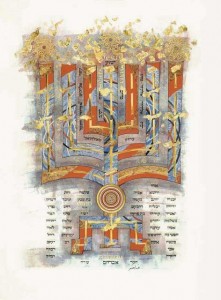 to David’s throne. God in his mercy fulfilled his promises to Abraham and to David that he would send a Savior and a King to rule over the house of Israel and to deliver them from their enemies.
to David’s throne. God in his mercy fulfilled his promises to Abraham and to David that he would send a Savior and a King to rule over the house of Israel and to deliver them from their enemies.
When Jacob blessed his sons he foretold that Judah would receive the promise of royalty which we see fulfilled in David (Genesis 49:10). We can also see in this blessing a foreshadowing of God’s fulfillment in raising up his annointed King, Jesus the Messiah. Jesus is the fulfillment of all God’s promises. He is the hope not only for the people of the Old Covenant but for all nations as well. He is the Savior of the world who redeems us from slavery to sin and Satan and makes us citizens of the kingdom of God. In him we receive adoption into a royal priesthood and holy nation as sons and daughters of the living God (see 1 Peter 1:9). Do you recognize your spiritual genealogy and do you accept God as your Father and Jesus as the sovereign King and Lord of your life?
“Lord Jesus Christ, you are the Messiah and Savior of the world, the hope of Israel and the hope of the nations. Be the ruler of my heart and the king of my home. May there be nothing in my life that is not under your wise rule and care.”
for the full reflection visit : Daily Reading and Meditation
Tags: catholic, catholic podcast, catholic prayer, cathollc spirituality, don schwager, gospel of matthew
This entry was posted on Saturday, December 17th, 2011 at 7:51 am
You can follow any responses to this entry through the RSS 2.0 feed.
you govern all creation with your strong yet tender care.
Come and show your people the way to salvation.
[powerpress]
Isaiah had prophesied, “The spirit of the Lord shall rest upon him: a spirit of wisdom and of understanding, a spirit of counsel and of strength, a spirit of knowledge and fear of the Lord, and his delight shall be the fear of the Lord.†(11:2-3), and “Wonderful is His counsel and great is His wisdom.†(28:29).
For greater text and musical credit visit
the Discerning Hearts O Antiphon page
Tags: catholic, catholic podcast, catholic prayer, cathollc spirituality, creation, fear, o antiphon, o sapientia, o wisdom
This entry was posted on Saturday, December 17th, 2011 at 12:06 am
You can follow any responses to this entry through the RSS 2.0 feed.
“John was a burning and shining lamp“
[powerpress = “Daily-Scripture”]
an excerpt from today’s reflection by Don Schwager: 
Do you know what it’s like to be on fire with God’s love? Jesus describes John the Baptist as a “burning and shining lamp” who gave light to those around him. A lamp does not give light by itself. It must first be lit. John’s message gave warmth because his heart was lit by the fire of God’s love and truth. Just as natural light dispels the darkness and makes the way clear, so God’s word brings light to dispel the spiritual darkness in our lives and to open the way to freedom and joy in God’s kingdom. John’s light pointed his hearers to the way of repentance and God. His message echoes the words of the prophet Isaiah: “salvation and deliverance will come to those who keep justice and do righteousness” (Isaiah 65:1). The prophets saw from afar how God would send his “anointed one”, the Messiah, to bring deliverance and freedom to those crushed by sin and oppression. Jesus bears witness in his own person and in the mighty works which he performed that God’s deliverance has truly come to those who accept him as Savior of Israel and Redeemer of humankind. The Lord Jesus gives us the fire of his Holy Spirit, not only to purify our hearts and minds, but to transform our lives into living torches of his saving love and mercy. Do you allow the light of God’s truth and love to shine in your heart and mind?
“Lord Jesus, let the fire of your love and truth burn in my heart that I may radiate the joy of the gospel to those around me.”
for the full reflection visit : Daily Reading and Meditation
Tags: catholic, catholic podcast, catholic prayer, cathollc spirituality, don schwager, gospel of john
This entry was posted on Friday, December 16th, 2011 at 12:02 am
You can follow any responses to this entry through the RSS 2.0 feed.
“He who is least in the kingdom of God is greater than John”
[powerpress = “Daily-Scripture”]
an excerpt from today’s reflection by Don Schwager: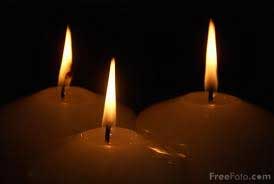
Why did Jesus say that John the Baptist was more than a prophet? John was the voice of the Consoler who is coming (John 1:23; Isaiah 40:1-3). He completed the cycle of prophets begun by Elijah (Matt. 11:13-14). What the prophets had carefully searched for and angels longed to see, now came to completion as John made the way ready for the coming of the Messiah, God’s Anointed Son, the Lord Jesus Christ. With John the Baptist, the Holy Spirit begins the restoration to the human race of the “divine likeness”, prefiguring what would be achieved with and in the Lord Jesus. John’s baptism was for repentance – turning away from sin and taking on a new way of life according to God’s word. Our baptism in Jesus Christ by water and the Spirit results in a new birth and entry into God’s kingdom as his beloved sons and daughters (John 3:5). Jesus is ready to give us the fire of his Spirit that we may radiate the joy and truth of the gospel to a world in desperate need of God’s light and truth. His word has power to change and transform our lives that we may be lights pointing others to Christ. Like John the Baptist, we too are called to give testimony to the light and truth of Jesus Christ. Do you point others to Christ in the way you live, work, and speak?
“Lord, let your light burn brightly in my heart that I may know the joy and freedom of your kingdom. Fill me with your Holy Spirit and empower me to witness the truth of your gospel and to point others to Jesus Christ.”
for the full reflection visit : Daily Reading and Meditation
Tags: catholic, catholic podcast, catholic prayer, cathollc spirituality, don schwager, gospel of luke, john the baptist, kingdom of god
This entry was posted on Thursday, December 15th, 2011 at 12:22 am
You can follow any responses to this entry through the RSS 2.0 feed.
[powerpress]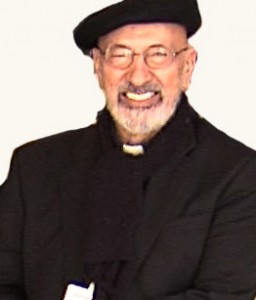
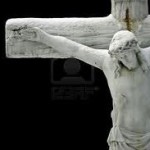 Msgr. Esseff spoke at a recent conference which was held in PA. in November 2011. In the 3rd talk he speaks about sinfulness. Â Â Our mistaken notions and what we should know. What are the traps, what will free us. How confession can bring us into right order.
Msgr. Esseff spoke at a recent conference which was held in PA. in November 2011. In the 3rd talk he speaks about sinfulness. Â Â Our mistaken notions and what we should know. What are the traps, what will free us. How confession can bring us into right order.
Be sure to visit Msgr. Esseff’s website: Â Building A Kingdom of Love
Tags: catholic, catholic podcast, catholic prayer, cathollc spirituality, Esseff, forgiveness, John Esseff, mistaken notions, msgr. john esseff, sin, truth
This entry was posted on Wednesday, December 14th, 2011 at 10:28 am
You can follow any responses to this entry through the RSS 2.0 feed.
VATICAN CITY, 14 DEC 2011 (VIS) –
In his general audience this morning, the Holy Father dedicated his catechesis to Jesus’ prayer in the context of His healing miracles, focusing particularly on the healing of the deaf man as narrated in the Gospel of St. Mark, and the raising of Lazarus.
The healing of the deaf man “demonstrates that the cures worked by Jesus were connected with the intensity of His relationships, both with others and with the Father”, the Pope said. “With a gesture the Lord touches the sick man’s ears and tongue; that is, the sites of his infirmity. … But the central point of the episode lies in the fact that Jesus, at the very moment He works the cure, directly seeks
His relationship with the Father”, by looking up to heaven. “The narrative shows, then, that human involvement with the sick man led Jesus into prayer. His unique relationship with the Father emerges once again, His identity as Only-begotten Son. In Him, through His person, the healing and beneficial action of God is made present among us”.
The raising of Lazarus also highlights this aspect of Jesus’ dual relationships, His concern for a suffering friend and His filial bond with the Father. “His sincere affection for His friend … is expressed by the fact that Jesus was deeply moved at the sight of the suffering of Martha and Mary, and of all Lazarus’ friends, and in His profoundly human tears as he approaches the grave”, the Pope explained. At the same time, Christ interprets His friend’s death “in relation to His own identity and mission, and the glorification awaiting Him. When He hears news of Lazarus sickness, He says: ‘this illness does not lead to death: rather it is for God’s glory, so that the Son of God may be glorified through it'”.
“The moment when Jesus prays directly to the Father before the tomb is the natural climax of the entire episode”. According to John the Evangelist “Jesus looked upward and said, Father I thank you for having heard me”. This phrase, Benedict XVI explained, “shows us that Jesus had not for a moment ceased His prayer for Lazarus’ life. That prayer was continuous, indeed it strengthened Jesus’ bond with His friend and, at the same time, confirmed His decision to remain in communion with the will of the Father, with His plan of love in which the sickness and death of Lazarus is the place in which the glory of God is made manifest”.
Trusting in God’s will
These episodes, said the Holy Father, help us to understand “that when we ask the Lord for something in prayer, we must not expect an immediate fulfilment of our requests, of our will; rather, we should entrust outsides to the will of the Father, reading events in the perspective of His glory, of His plan of love which is often a mystery to our eyes. Thus in our prayer, request, praise and thanksgiving should fuse together, even when it seems to us that God does not respond to our expectations. Abandoning ourselves to the love of God, which always precedes and accompanies us, is a fundamental principle in our dialogue with Him. … Beyond anything that God may give us when we invoke Him, the greatest gift He can give us is His friendship, His presence, His love”. The
giver is more precious than the gift.
“The concern Jesus, true God and true man, feels for others, especially the needy and suffering, … causes Him to turn to the Father. … But the opposite is also true: communion with the Father, constant dialogue with Him, causes Jesus to be attentive to the real-life situations of man, to which He brings the consolation and love of God”.
This profound bond between love for God and love for others must, the Pope concluded, also be part of our own prayers, which “open the door to God, teaching us how to abandon our own selves in order to come close to others, especially in moments of trial, bringing them consolation, hope and light”.
At the end of his catechesis the Holy Father spoke in various languages to greet the more than 7,000 pilgrims gathered in the Paul VI Hall. He expressed his particular appreciation to the people who had contributed to the restoration of the sculpture of “The Resurrection” by Pericle Fazzini, which adorns the Hall. “Following a period of painstaking efforts”, he said, “today we have the joy of being able to admire this work of art and faith in all its original splendour”.
Speaking then in Spanish, Benedict XVI addressed a delegation from the Mexican state of Puebla, expressing the hope that, “with God’s help, I will soon be able to visit you in your country”.
Tags: catholic, catholic podcast, catholic prayer, cathollc spirituality, pope benedict xvi, prayer
This entry was posted on Wednesday, December 14th, 2011 at 7:42 am
You can follow any responses to this entry through the RSS 2.0 feed.
“The blind receive their sight and the poor have good news preached to them”
[powerpress = “daily-scripture”]
an excerpt from today’s reflection by Don Schwager: 
Jesus makes his point clear: Good intentions are not enough. And promises don’t count unless they are performed. God wants to change our hearts so that we will show by our actions that we respect his will and do it. God offers each of us the greatest treasure possible – unending peace, joy, happiness, and life with him in his kingdom. We can lose that treasure if we refuse the grace God offers us to follow in his way of truth, love, and righteousness. Jesus encourages us to think – to think about the consequences of our choices, especially the choices and decisions that will count not just for now but for eternity as well. The choices we make now will affect and shape our future, both our future on earth as well as in the life of the age to come. Are you ready to obey your heavenly Father and to choose for his kingdom of righteousness and peace?
“Lord Jesus, change my heart that I may desire to do whatever is pleasing to you. Help me to respect your will and give me the strength, joy, and perseverance to carry it out wholeheartedly.”
for the full reflection visit : Daily Reading and Meditation
Tags: advent, catholic, catholic podcast, catholic prayer, cathollc spirituality, don schwager, gospel of luke
This entry was posted on Wednesday, December 14th, 2011 at 12:04 am
You can follow any responses to this entry through the RSS 2.0 feed.
“The baptism of John, whence was it? From heaven or from men?”
[powerpress = “Daily-Scripture”]
an excerpt from today’s reflection by Don Schwager: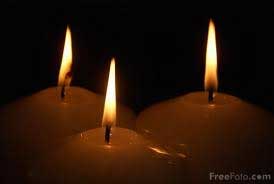
When the prophet John the Baptist began to preach a message of repentance in preparation for the coming of the Messiah, the religious leaders and rulers in Palestine resisted his word and persecuted him as well. Jesus met resistance, opposition, and fierce hostility from the religious rulers as well. Why did the religious leaders oppose Jesus and reject his claim to divine authority? Their view of religion did not match with God’s word because their hearts were set on personal gain rather than truth and submission to God’s plan and design for their lives. They openly questioned Jesus to discredit his claim to be the Messiah. If Jesus says his authority is divine they will charge him with blasphemy. If he has done this on his own authority they might well arrest him as a mad zealot before he could do more damage. Jesus, seeing through their trap, poses a question to them and makes their answer a condition for his answer. Did they accept the work of John the Baptist as divine or human? If they accepted John’s work as divine, they would be compelled to accept Jesus as the Messiah. They dodged the question because they were unwilling to face the truth. They did not accept the Baptist and they would not accept Jesus as their Messiah.
The coming of God’s kingdom or reign on the earth inevitably leads to conflict – a conflict of allegiance to God’s will or my will, God’s justice or the world’s way of playing fair, God’s standard of absolute moral truth or truth relative to what I want to believe is good and useful for the time being. How do you respond to Jesus’ claim to be not only the Messiah, but the source of everlasting life and truth as well? Do you submit to his word and stake your life on the coming of his kingdom? Jesus promises that those who seek to live according to God’s truth will find true joy, freedom, and happiness both now and forever.
“Lord Jesus Christ, you are the Way, the Truth, and the Life. Let your light shine in my heart and in my mind that I may grow in understanding the truth of your word and find joy and freedom in living according to it.”
for the full reflection visit : Daily Reading and Meditation
Tags: advent, catholic, catholic podcast, catholic prayer, cathollc spirituality, don schwager, gospel of matthew, john the baptist
This entry was posted on Monday, December 12th, 2011 at 12:05 am
You can follow any responses to this entry through the RSS 2.0 feed.
[powerpress = “Vatican-Radio”]
 Pope Benedict XVI heard the second in a series of sermons dedicated to the theme of the New Evangelization. After singing the ancient Advent hymn, Rorate coeli, Capuchin Father Raniero Cantalamessa delivered a 5-part discourse centered on the history of the Church’s preaching of the Gospel, beginning with the great re-thinking of the relationship between the pilgrim Church on Earth to the secular authority accomplished by St Augustine of Hippo, and leading through the great periods of evangelization – and in some cases re-evangelization – of the peoples of Europe in the wake of the collapse of the Roman Empire in the West, before turning to the magnificent renewal of learning and missionary zeal – concentrating on the creation and development of monasticism, which itself ran through the dark centuries after the fall of the West and made possible the magnificent achievements of the High Middle Ages.
Then, Fr. Cantalamessa turned to the present, reflecting on the relationship between Mission and Contemplation, saying, “It is not enough that there be in the Church those who dedicate themselves to contemplation and those who dedicate themselves to mission: there must rather be a synthesis of the two things in the very life of every missionary.â€
Fr. Cantalamessa concluded his reflections on a Marian note, saying,
“Mary is the Star of Evangelization, for she brought the Word, not to this or that people, but to the whole world,â€
and noting that she did so by carrying the Word in her womb – not in her mouth or on her lips. “She was filled,†he said, “even physically, with Christ – and she radiated Him with her very presence
Tags: catholic, catholic podcast, catholic prayer, cathollc spirituality, contemplation, mission, vatican radio
This entry was posted on Saturday, December 10th, 2011 at 6:03 am
You can follow any responses to this entry through the RSS 2.0 feed.
Episode 6- Communion with Christ – Practical Prayer –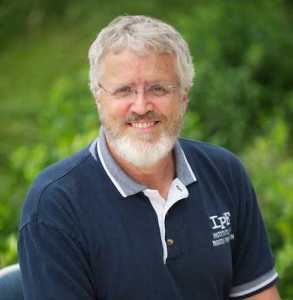 How we receive prayer.  The reception of grace and the great gift of memory. “Ask…seek…knock “.  Through prayer, heaven begins. Prayer is a battle…it isn’t easy.  Western culture is a “culture of distraction”.  We need to receive the coming of God when it enlights upon us.
How we receive prayer.  The reception of grace and the great gift of memory. “Ask…seek…knock “.  Through prayer, heaven begins. Prayer is a battle…it isn’t easy.  Western culture is a “culture of distraction”.  We need to receive the coming of God when it enlights upon us.
[powerpress]
Deacon James Keating, PhD, the director of Theological Formation for the Institute for Priestly Formation, located at Creighton University, in Omaha.
 From the Catechism of the Catholic Church paragraph 2610and 2611
From the Catechism of the Catholic Church paragraph 2610and 2611
2610 Just as Jesus prays to the Father and gives thanks before receiving his gifts, so he teaches us filial boldness: “Whatever you ask in prayer, believe that you receive it, and you will.”66Â Such is the power of prayer and of faith that does not doubt: “all things are possible to him who believes.”67Â Jesus is as saddened by the “lack of faith” of his own neighbors and the “little faith” of his own disciples68Â as he is struck with admiration at the great faith of the Roman centurion and the Canaanite woman.69
2611 The prayer of faith consists not only in saying “Lord, Lord,” but in disposing the heart to do the will of the Father.70Â Jesus calls his disciples to bring into their prayer this concern for cooperating with the divine plan.71
2612 In Jesus “the Kingdom of God is at hand.”72Â He calls his hearers to conversion and faith, but also to watchfulness. In prayer the disciple keeps watch, attentive to Him Who Is and Him Who Comes, in memory of his first coming in the lowliness of the flesh, and in the hope of his second coming in glory.73Â In communion with their Master, the disciples’ prayer is a battle; only by keeping watch in prayer can one avoid falling into temptation.74
For more information on the “Institute of Priestly Formation†and for other material available by Deacon Keating, just click here
Don’t forget to pickup a copy of “Communion with Christ†, it is one of the best audio sets on prayer…ever!
Check out Deacon Keating’s “Discerning Heart†page
Tags: catholic, catholic podcast, catholic prayer, cathollc spirituality, creighton university, Deacon James Keating, Deacon Keating, institute for priestly formation, institute of priestly formation, james keating, prayer, theological formation
This entry was posted on Saturday, December 10th, 2011 at 1:43 am
You can follow any responses to this entry through the RSS 2.0 feed.
“He will save his people from their sins”
[powerpress = “daily-scripture”]
an excerpt from today’s reflection by Don Schwager: 
God gives signs to show what he is about to do. John the Baptist is one such sign, who pointed to Jesus and prepared the way for his coming. John fulfilled the essential task of all the prophets: to be fingers pointing to Christ. John is the last and greatest prophet of the old kingdom, the old covenant. The Jews expected that when the Messiah would come, Elijah would appear to announce his presence. John fills the role of Elijah and prepares the way for the coming of Christ by preaching a baptism of repentance and renewal. As watchful servants, we, too must prepare for the Lord’s coming again by turning away from sin and from everything that would keep us from pursuing his will. Are you eager to do God’s will and are you prepared to meet the Lord Jesus when he returns in glory?
“Lord Jesus, stir my zeal for your righteousness and for your kingdom. Free me from complacency and from compromising with the ways of sin and worldliness that I may be wholeheartedly devoted to you and to your kingdom.”
for the full reflection visit : Daily Reading and Meditation
Tags: catholic, catholic podcast, catholic prayer, cathollc spirituality, don schwager, gospel of matthew, Jesus, john the baptist
This entry was posted on Saturday, December 10th, 2011 at 12:05 am
You can follow any responses to this entry through the RSS 2.0 feed.
Episode 12 – Seeking Truth with Sharon Doran, hosted by Bruce McGregor. Â Ep 12 – The Blessed Virgin Mary, “The Head-Crushing” Immaculately Conceived Handmaid of the Lord
[powerpress]
Sharon Doran serves as the teaching director of “Seeking Truth.†An experienced Bible Study teacher, Sharon has a passion forscripture that will motivate and challenge you to immerse yourself in God’s Word and apply His message to your every day life.
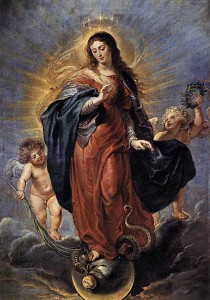 Episode 12 – Sharon and Bruce discuss the Blessed Virgin Mary. Â Mary is the new Eve! The sin-free woman who will crush the head of the serpent. Â Sharon breaks open Genesis chapter 2, the Gospel of Luke, Revelation 12 and the Old Testament teachings on the two other woman who are “blessed” and how this shines a light on our understanding of Mary!
Episode 12 – Sharon and Bruce discuss the Blessed Virgin Mary. Â Mary is the new Eve! The sin-free woman who will crush the head of the serpent. Â Sharon breaks open Genesis chapter 2, the Gospel of Luke, Revelation 12 and the Old Testament teachings on the two other woman who are “blessed” and how this shines a light on our understanding of Mary!
 “Seeking Truth†is an in depth Catholic Bible Study, commissioned by the Archdiocese of Omaha in response to John Paul II’s call to the New Evangelization as well as Pope Benedict XVI’s exhortation for all Catholics to study scripture. To learn more go to:www.seekingtruth.net
“Seeking Truth†is an in depth Catholic Bible Study, commissioned by the Archdiocese of Omaha in response to John Paul II’s call to the New Evangelization as well as Pope Benedict XVI’s exhortation for all Catholics to study scripture. To learn more go to:www.seekingtruth.net
Tags: blessed virgin mary, catholic, catholic podcast, catholic prayer, cathollc spirituality
This entry was posted on Friday, December 9th, 2011 at 9:18 am
You can follow any responses to this entry through the RSS 2.0 feed.



